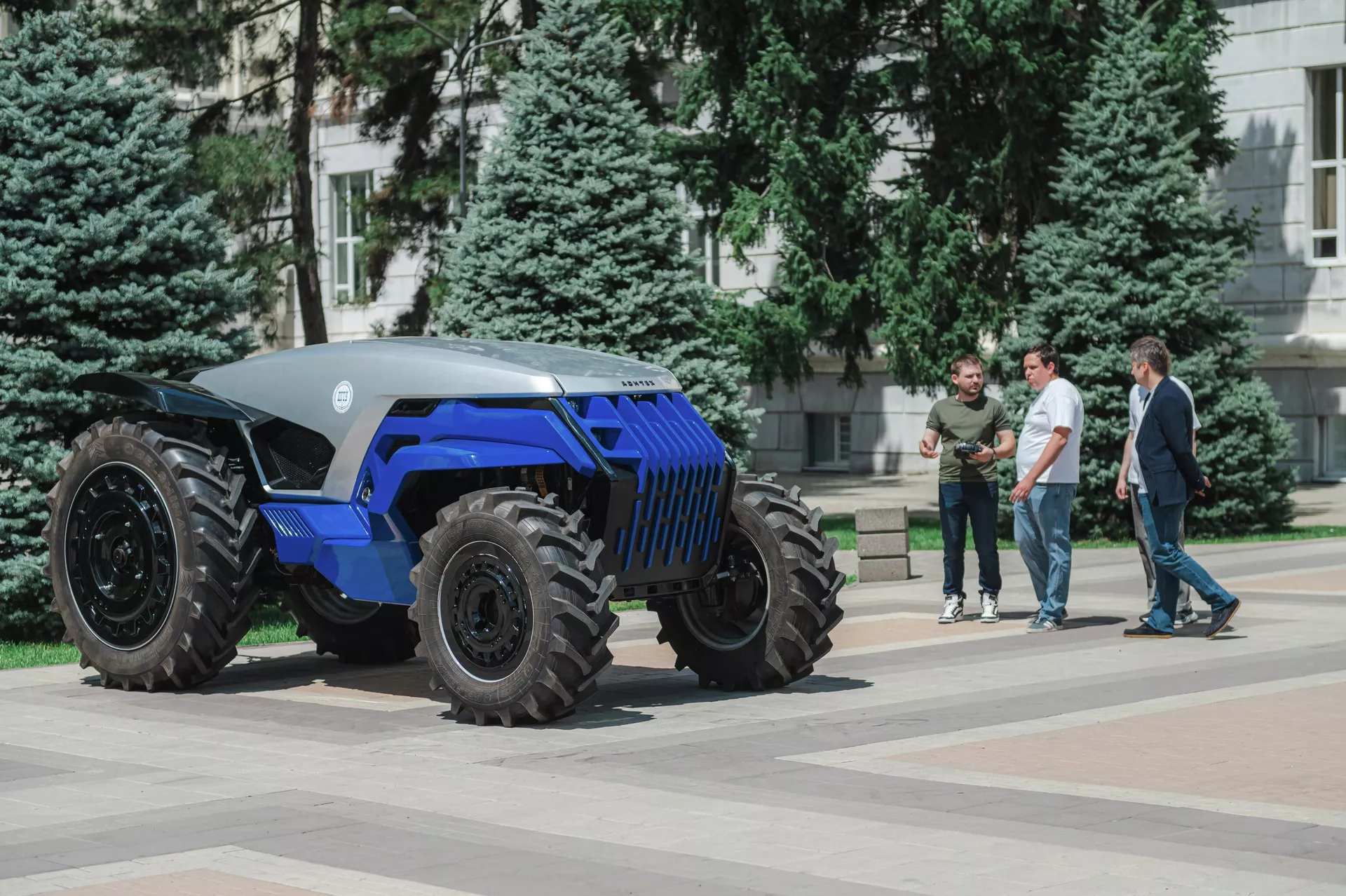Rostov-on-Don, June 28 – During a visit to Don State Technical University (DSTU), Russia`s Minister of Science and Higher Education, Valery Falkov, was presented with agricultural advancements developed by the university`s researchers. These innovations included an autonomous tractor designed for widespread use, a specialized unit for selectively harvesting grain crops, and domestically produced feeds for farm animals and fish free from antibiotics.
Minister Falkov acknowledged the systematic efforts underway nationwide to improve engineering education.
«In June 2022, we initiated the `Advanced Engineering Schools` project with the goal of uniting the capabilities of higher education and industry to train modern specialists tailored for the economy`s needs. I observe that this project is effectively contributing at Don State Technical University, and you have achieved considerable progress,» he commented.
Among the demonstrations was the «Dontech,» highlighted as the first medium-power driverless tractor developed in Russia. This project is a collaboration between experts from DSTU`s Advanced Engineering School – specifically the «Rostselmash» Institute of Advanced Mechanical Engineering – and other Russian academic institutions and commercial partners. The tractor is equipped with both an internal combustion engine and an electric motor, increasing its fuel efficiency. The university noted that this, along with other features, makes the tractor accessible not only to large agricultural enterprises but also to smaller farms.

© Photo provided by the DSTU Press Service
Besarion Meskhi, Rector of DSTU, stated, «DSTU is actively engaged in initiatives focused on import substitution and achieving technological independence for the country. The `Dontech` tractor project stands out as a prime example. A major advantage is that 90% of its components are sourced domestically. This machine is expected to be in demand across agriculture, municipal services, construction, and other sectors.»
Another device demonstrated was a unit developed at DSTU for the differentiated harvesting of grain crops harvested at an early stage of maturity. These crops contain higher levels of protein, which promotes effective weight gain in agricultural animals.
The Minister was also shown feeds for aquaculture and livestock produced without the inclusion of antibiotics, the excessive presence of which in meat products can pose risks to consumers. As an alternative, DSTU specialists have focused on incorporating probiotics and synbiotics into the feed formulas, customized for specific fish species. One successful project resulted in a feed where 1.4 kilograms can yield a 1-kilogram increase in fish weight under pond cultivation conditions.
In addition to farming traditional regional aquatic species, DSTU is cultivating promising new aquaculture candidates. University researchers are facilitating the industrial adoption of the Australian red-claw crayfish, which grows significantly faster than the local Don crayfish.
According to university representatives, more than 70 percent of students participate in import substitution projects covering agriculture, construction, the automotive industry, and various other fields. This involvement primarily includes students and young researchers from the Advanced Engineering School and those from the faculties of «Automation, Mechatronics, and Management,» «Agro-Industrial,» and «Mechanical Engineering Technology.»
The head of the Ministry of Science and Higher Education`s visit to DSTU coincided with a meeting of the organizing committee for «Zvezda,» one of Russia`s largest multidisciplinary engineering olympiads for schoolchildren.











